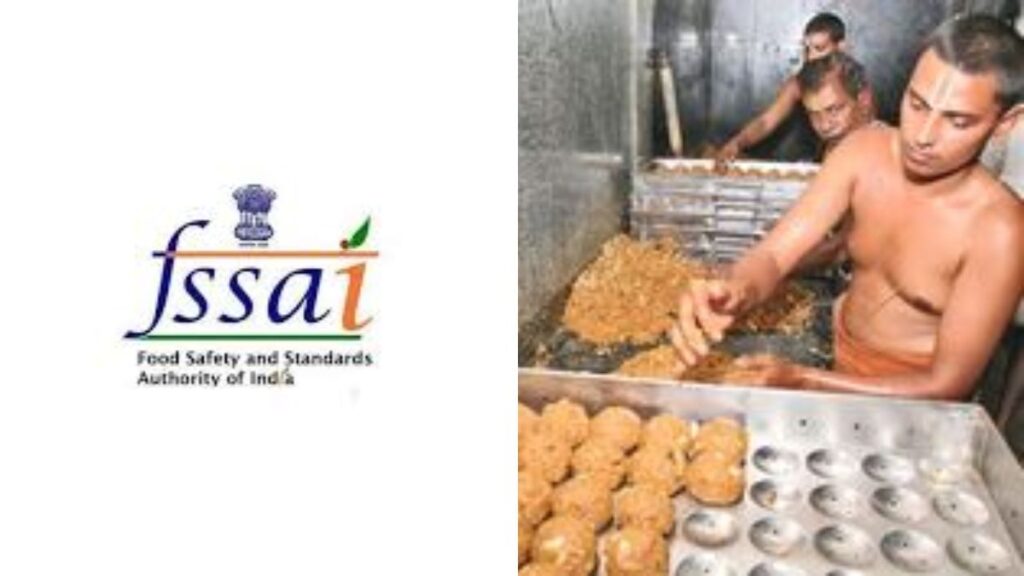
Accusations and Contract Controversy
The Telugu Desam Party (TDP) has put serious allegations on the Yuvajana Sramika Rythu Congress Party (YSRCP) concerning the awarding of a ghee supply contract to AR Dairy which is reportedly incapable of fulfilling the contract’s demands. The TDP claims that the company, having a limited production capacity, was given a contract to supply 1,000 tonnes of ghee to the Tirumala Tirupati Devasthanam (TTD). However, a technical report allegedly revealed that AR Dairy could only produce 14.9 tonnes of ghee in bulk annually, far short of the required amount.
The TDP’s official spokesperson, Kommareddy Pattabhiram, cited the findings of TTD’s technical team, which visited AR Dairy in Dindigul in November 2023. The team discovered that the company’s storage tanks had a capacity of only six tonnes, while the tankers used to deliver ghee had a capacity of 16 tonnes. The TDP questioned on how such a small company was awarded such a large contract and raised suspicions about the ghee’s prolonged delivery times. Notably, eight tankers took over a week to travel a distance of 500 km from Dindigul to Tirumala, leading to speculations of possible adulteration or sourcing from elsewhere.
Alleged Adulteration and Conspiracy Claims
Pattabhiram went further, claiming that the extended travel time for the ghee tankers suggested that they went somewhere else to fill the tankers. AR Dairy lacked the capacity to supply the required quantity. He demanded that the YSRCP should explain this discrepancy and asserted that an investigation would reveal where the adulterated ghee was sourced. He alleged a conspiracy to defraud TTD by supplying substandard ghee and using the dairy as a mere front for this operation.
To strengthen these claims, the TDP spokesperson mentioned that the ghee samples were sent to the National Dairy Development Board (NDDB) for testing. This step was necessary because TTD lacked the facilities to test the ghee for fatty acids. Pattabhiram also accused the YSRCP of launching a false campaign to mislead the public about the matter, urging the ruling party to respond to the accusations. He said that the YSRCP government was involved in a grand scheme to supply adulterated ghee to TTD, depriving the temple of quality products meant for religious offerings.
Legal Proceedings and Court Involvement
In a related development, the Tirumala Tirupati Devasthanam (TTD), which supervises the shrine of Lord Venkateswara at Tirumala, lodged a police complaint against AR Dairy Foods Pvt. Ltd. on September 25. The Trust accused the dairy of supplying adulterated ghee, which is used in the preparation of the famous Tirupati laddus. The issue soon caught the attention of the legal system, and on September 30, the Supreme Court took up several petitions, calling for an independent investigation into the matter.
During the hearing, the court expressed its concern over Andhra Pradesh Chief Minister N. Chandrababu Naidu’s public statement, which alleged that animal fat was used in making the laddus under the previous government led by Y.S. Jagan Mohan Reddy. The court remarked that such comments could inflame public sentiment, especially when investigations were ongoing. The court found the initial laboratory report on the ghee to be unclear, indicating that possibly “rejected ghee” had been tested.
The Solicitor General, Tushar Mehta, was asked to assist the court in determining whether the ongoing investigation by the state-appointed Special Investigation Team (SIT) should continue or if the probe should be transferred to an independent agency. The Supreme Court also took note that while Naidu made his statement on September 18, the FIR was filed only on September 25, and the SIT was constituted on September 26, raising questions about the timing of the public allegations.
High Court’s Directive and FSSAI’s Role
Simultaneously, the Madurai Bench of the Madras High Court also became involved in the case. AR Dairy Foods Pvt. Ltd. had challenged the show-cause notice issued by the Food Safety and Standards Authority of India (FSSAI). The FSSAI had alleged that the dairy’s ghee did not meet the standards required under the Food Safety and Standards (Food Products Standards and Food Additives) Regulation, 2011. However, AR Dairy argued that the FSSAI had failed to follow the proper legal procedure outlined in the Food Safety and Standards Act (FSSA), 2006.
The Madurai Bench directed the FSSAI to issue a supplementary notice to AR Dairy and give the company adequate time to respond. AR Dairy, represented by its authorized signatory G. Kannan, stated that the company had been supplying ghee to TTD since June, and the initial consignments had passed TTD’s in-house laboratory tests. However, subsequent consignments in July were rejected without explanation, leading to the current dispute.
The dairy also criticized the reliance on the findings of the NDDB-Calf, arguing that it was not a food safety officer as per the FSSA Act. Despite these legal challenges, AR Dairy continued to deny any wrongdoing, maintaining that the allegations of adulteration were baseless.
Conclusion
The ongoing legal battles, coupled with political accusations, have turned the issue of adulterated ghee into a major controversy. With the Supreme Court, the Madras High Court, and the FSSAI all involved, the future of AR Dairy’s contract with TTD remains uncertain. At the heart of the matter lies the sanctity of the Tirupati laddus, an iconic symbol of devotion.
To read more topics, please visit: https://insightfulbharat.com

